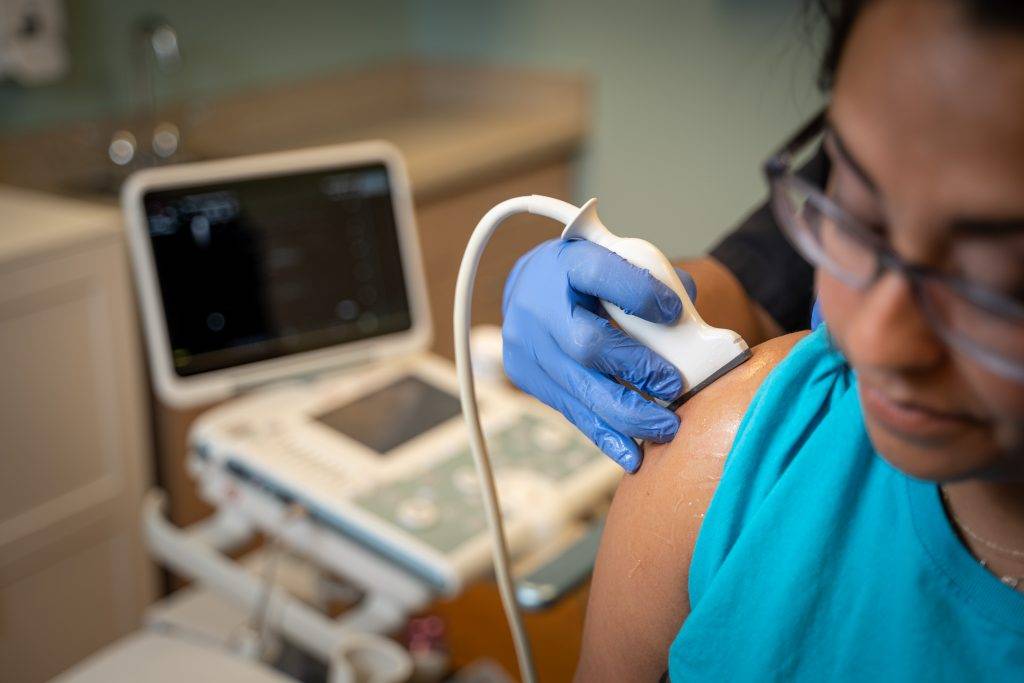The Importance of Warm-Up Exercises

If there’s a good thing that came out of the pandemic, it’s probably the conversion of unhealthy lifestyles to healthier ones. As more health-conscious patients start to embrace the habit of exercise, it is crucial to be mindful of the importance of proper warm-up exercises. It is an extra step within a workout that can make or break your workout routine.
As a trusted sports medicine provider and physiatrist in Charlotte, Advanced Sports & Spine aims to educate everyone on how to properly gear up the body for an intense workout. Without a good warm-up exercise, the risk of injury on the muscles and joints can occur, affecting your life.
In some cases, a lack of dynamic warm-up exercises can lead to life-threatening cardiovascular conditions like cardiac arrest. According to the American College of Cardiology, exercise is a great way to reduce your risk for heart disease. However, the increased stress on the heart during an exercise increases your risk for a sudden cardiac arrest.
By slowly preparing the muscles and blood flow in an exercise, you are easing the sudden stress on your heart. To fully understand the concept of warm-up exercises, it’s best to first know how muscles work during an exercise.
How do muscles work during an exercise?
During an exercise, the nervous system sends several hormones and neurotransmitters to the body that triggers increased blood flow and muscle processes. As your heart pumps faster, the capillaries in your skeletal muscles dilate and allow 20 times more blood to flow from the liver and digestive system. The lungs also expand and store 15 times more oxygen to help you breathe faster and deeper.
With increased blood in the muscles, your energy levels increase. Your liver uses up all the stored energy in the form of glucagon to supply energy and blood to your muscles. Glucagon can also stimulate the increased uptake of amino acids in the liver and turn them into proteins. Once the glucagon depletes, your liver will turn fats into energy to supply the needs of your body.
When your muscles receive a greater resistance, some microscopic tears in the tissues occur. Then, the satellite cells on the muscle fibers replicate and fuse to your muscle fibers to fix the damage which leads to increased muscle strength and size. Too much resistance on your muscles can cause big muscle tears that cause muscle strain and injuries.
What happens if you don’t do warm-up exercises?
Stretching or putting resistance to a cold muscle activates the repair mechanism of your muscles which makes them stiff, including the joints.
Research from the National Strength and Conditioning Association states that static stretching and resistance on cold muscles puts them to work in a contracted state which increases the likelihood of injury and decreased muscle performance.

Benefits of warm-up exercises before and after a workout
A pre-workout warm-up routine may look like an extra task for most people, but it provides several advantages to your body behind the scenes. These include:
Increases the blood supply to muscles
During a warm-up exercise, you are slowly increasing your heart rate, which lubricates the muscles in your arms and legs with blood. Neurotransmitters from your brain are sent to the muscles to dilate, allowing more blood to the muscles. More blood flow to the muscles makes them more flexible and elastic.
If you fail to warm up your muscles before a workout, you may experience any of the following injuries:
Boosts the body temperature
With more blood flowing through your muscles during quick cardio or warm-up exercise, your body becomes warmer. Muscles love a warm environment since it makes them more elastic and softer. With increased elasticity from muscle fibers, your joints can have a full range of motion and make it easier for you to bend your knee or move your arms in different directions.
Loosens up the joints and lessens post-workout muscle pain
A quick warm-up exercise removes the stiffness in your joints and can help reduce joint swelling. It also helps prevent big muscle tears, which often occur when stretching a cold and stiff muscle. The healing of big muscle tears can cause more muscle pain that may hinder beginners from having another workout session the next day.
Makes your workout heart-friendly
Don’t forget that our heart is also a muscle. Allowing it to slowly adjust to your workout through a warm-up exercise prepares it enough for a more intense workout later and avoids sudden shock. It establishes a good blood flow throughout the body before your heart intensely pumps more blood in and out of your heart.
Everyone is at risk of cardiac arrest during an exercise, even professionals and enthusiasts. Be kind to your heart and take extra precautions through warm-up exercises.
Got some muscle injuries? Let Advanced Sports & Spine help.
If you are experiencing a muscle strain or pain on your joints due to an intense workout, you might be suffering from a pulled muscle or a joint injury. Let Dr. Ahmad help you find the real cause of your pain and provide a non-opioid and non-surgical solution for your condition.
Book an appointment today and learn how to perform your workouts better to avoid muscle injuries.
